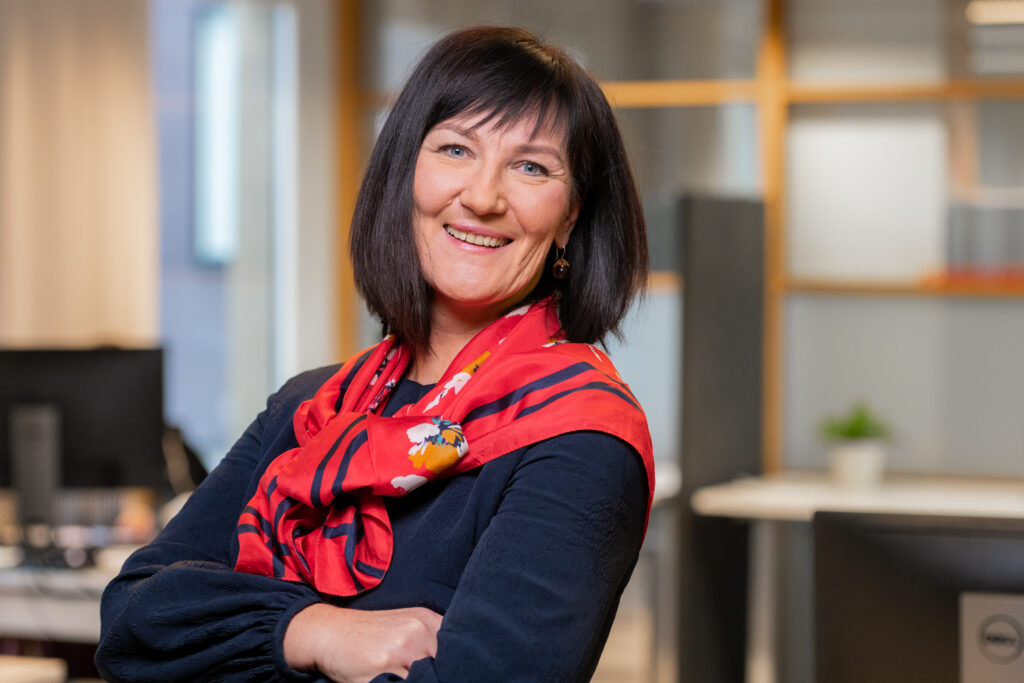Number of bankruptcies up by 26% in Estonia

Creditinfo’s bankruptcy survey revealed that the amount of bankruptcies grew last year for the first time in ten years and increased 26% compared to 2019 in Estonia.
Last time the number of bankruptcies grew significantly was due to the global economic crisis in 2008 and 2009 when the growth measured up to 150% in annual comparison. There was marginal growth (+2.4%) in 2017, but this was a shift by eight companies. In 2020, the number of bankrupt companies increased from previous year’s 271 to 341 ( 26%). The share of companies that have gone bankrupt is at 0.15% of all registered companies.
“The amount of bankruptcies remained at a low level in 2020, but there was still a trend of significant growth in the number of bankruptcies that we have not seen since the beginning of the previous great economic crisis. It may be assumed that this was partly due to the effects of the corona crisis, but since the bankruptcy process is long-term, we will probably see the greater effect here next year,“ explained Creditinfo Estonia’s analyst Helen Tinkus.
There was also growth in the last decade’s continuous downtrend of the number of asset-less companies, where bankruptcy rates dropped due to the absence of assets. During 2010-2019 the number of dropped bankruptcies decreased on average by 14% yearly. In 2020, the number of asset-less companies increased by 49%.
“This might have been caused by the fact that the economic environment had become insecure because of the corona crisis. More business plans failed completely and the companies were unable to gather any assets at all before the insolvency situation developed. At the same time, there were also some asset-less companies that showed substantial turnover numbers in the years prior to the bankruptcy,“ Tinkus added.
The areas with the highest rate of bankruptcy are still hospitality and catering, manufacturing industry and construction. The rate of bankruptcy was above the average in wholesale and retail as well.
“There have been no changes in the fields of activity with the highest bankruptcy rate in the recent years. But the share of bankrupt companies in the hospitality and catering sector grew faster than in others, both compared to other fields of activity and to previous periods. These are the fields that was influenced the most by the corona crisis and the restrictions. Based on the payment defaults and wage compensations statistics, we can predict a greater effect of the crisis on the companies operating in the field also in the coming years,“ Tinkus stated.
Creditinfo Estonia Ltd has conducted bankruptcy surveys about Estonian companies since 2000. During the 20 years the number of bankruptcies has both increased and decreased in waves, reaching the peak level in 2009 as a result of the global economic crisis. In 2011 the number of bankruptcies fell by a remarkable 40%, in 2012 by 20%. Bankruptcies have decreased steadily also in the following years, reaching the pre-crisis low level in 2015.

Ends.
Media Contacts:
Rain Resmeldt Uusen, Head of Marketing – Creditinfo Estonia
Email: turundus@creditinfo.ee
Tel: +3725018998
Creditinfo Lithuania ISO27001 certified

Creditinfo Lietuva collects, stores and analyses information about the creditworthiness of businesses and individuals, assesses their credit history and assigns appropriate credit ratings. To meet the highest data security standards, the bureau introduced an ISO certified information security management system in 2014.
The system complies with the requirements of ISO/IEC 27001:2013 and is constantly reviewed, revised and subject to annual audits. On 26 April 2021, “Creditinfo Lietuva” successfully passed the periodical annual audit performed by “Bureau Veritas”.
The audit assessed the entire organization against 22 compliance criteria, including the competence and data security awareness of leadership and staff, information security management, business management procedures, sharing of responsibilities, management of documents, planning and control, activity monitoring and analysis, internal audit procedures, ability to swiftly resolve issues, continuous improvement, etc.
The audit also assessed the competence of employees of all levels, security of the information systems, IT and support, compliance of the information analysis and sales departments with the ISO requirements. The physical security and business policies of Creditinfo Lietuva were addressed by the audit as well.
The 2021 audit concluded that the information security management system of Creditinfo Lietuva meets the highest standards and can be considered a good practice. Data security in the company is given the highest priority, internal and external risks are constantly monitored and analyzed, and the company is prepared to address the risks in a professional manner.
Creditinfo analysis reveals Lithuanian textile industry severely hit by the pandemic

According to Creditinfo Lietuva, the textile industry of Lithuania is among the business areas which was hit by the pandemic extremely hard. In some sectors of the textile industry, the revenue is 30% below where it was before the pandemic, clothing manufacturers lost 11.7% and leather companies 31% of their employees. 17% of clothes making companies and 15% of textile manufacturers have been given high or very high bankruptcy risk scores.
“Textile industry, an extremely important business sector in Lithuania, is facing unprecedented challenges all over the world. Together with services, tourism and catering, the textile business has been suffering from a severe hit the consequences of which will persist for many more months to come”, says Aurimas Kačinskas, General Manager at Creditinfo Lietuva. “Unfortunately, there is little room for optimism in the immediate future of the sector, which means we‘ll have to keep business partners of the sector under a magnifying glass for quite some time”.
Further Downfall by 30% is Forecast if Global Lockdown Continues
A few days ago, “Coface” published its latest analysis of the global economy, where the economic forecast was downgraded only for the Central and Eastern Europe textile sector, while the textile industry itself, like global textile, was moved from high risk to the very high risk category. It means that no recovery or return to the pre-covid level is expected in textile industry until the end of the year. According to “Coface”, in the best-case scenario the decline of the textile industry will come to a halt at the end of the year, provided there are no new lockdowns introduced globally. If the countries worldwide continue imposing movement and social contact restrictions, this year will only see a further shrinking of the textile industry down to 30 percent of its volume in 2020, the year of hardship.
According to Statistic Department of Lithuania, the textile industry of Lithuania is made up of companies engaged in clothes making, textile manufacturing, leather processing and leather manufacturing businesses.
Employment at Leather Companies Plunged by 31 per-cent
According to Creditinfo, 949 companies reported textile-related activities as their core business last spring; there are 942 of such companies this year. Although the difference is slim, the true impact of the pandemic is revealed by the employment statistics. For instance, over the period of one year the number of employees at the clothes making companies dropped from 15,142 to 13,364 (11.7 per cent), and from 684 down to 472 (31 percent) at leather processing and leather manufacturing companies
Analysis conducted by Creditinfo revealed the revenue of textile manufacturing companies shrunk by 3.1 percent (from EUR 470.4 million to 455.8 million) compared with their revenue in 2019. The same trend was observed at the cloth making companies, where the revenue dropped by 19.9 percent from EUR 457.1 million down to 365.9 million, and leather processing and leather manufacturing companies with revenue going down by 30.2 percent from EUR 23.1 million to 16.2 million.
“We noticed that small and medium sized textile companies suffered the most, while large companies still had orders to fulfil”, says the CEO of the credit bureau. “Yet it is rather likely that the further shrinking textile market this year will reduce the number of orders for the large companies, too. It means that even more employees will be forced out of their jobs in the sector”.
1/6th of Companies with High and Very High-Risk Scores
According to the credit bureau, about 17% of cloth making companies and 15% of textile manufacturers currently are ranked as high bankruptcy risk companies.
“Earlier, the textile business was growing for quite some time, and so did the creditworthiness of the companies. Currently, the risk scores of textile companies brought them in line with problem sectors such as construction and transport”, Kačinskas explains.
Moreover, experts of the credit bureau noted, that only 25 percent of the companies in the textile industry submitted their financial statements for 2020. “It seems that only companies applying for subsidies or other pandemic-related reliefs submitted their financial statements as they were required to get the subsidies”, says Kačinskas. “We call upon all companies to declare their financial situation in time, as it will enable all market players to make more objective assessment of the textile sector, and help business partners to make more accurate decisions”.
For more information, please contact:
Aurimas Kačinskas, General Manager, Creditinfo Lietuva
Email: aurimas.kacinskas@creditinfo.lt
Tel: +37061810110
In boosting businesses, we could spurt like Ferraris, but we’re moving at Turtle speed

The analysis of the use of funds and current tendencies in the country’s economy leads to the obvious conclusion that we use the available financial resources in Lithuania in a too conservative way, and, instead of the opportunity to exploit the situation and spurt at the capacity of Ferrari, we choose a safe but a very slow growth at the speed of a Turtle.
From a psychological point of view, the situation is understandable, since along with the usual risks – commercial, technological and many others, business today faces the biggest challenge of regulation.
Recalling the lessons of 2009-2011 crisis, both business companies and banks more often ground the management of their economic situation on risk minimization. In other words, for reasons of caution, they would rather not grant a loan than allot time for a more thorough analysis of the situation.
However, a qualified and comprehensive risk management provide opportunities for business development, especially now, when we have a sufficient number of automated management tools based on data.
Several weeks ago, a survey carried out by the Bank of Lithuania (LB) showed that at the present moment, a more careful consideration should be given to hotels, restaurants, and part of real estate companies. However, the significantly reduced or discontinued funding has had a negative effect on an absolute majority of business sectors whose situation during the pandemic has not gotten worse and has even improved.
Capital adequacy is good, but a reluctance to lend money remains
Responsible lending constitutes the backbone of any economy, and Lithuanian business has learned to take a responsible attitude to loan repayments. For example, Lithuania is marked out among other countries of the European Union (EU) by the smallest – only 3% of all loan portfolio – part of business enterprises which have made use of a moratorium on loans declared in the spring of 2020.
In addition, according to the Bank of Lithuania, part of non-performing loans has been regularly decreasing and now has reached the lowest historical level of 1.5%. In other words, in their concern about high credit ratings and a good financial reputation, the enterprises are doing their utmost to repay both loans and interest on time.
With full knowledge of the aforementioned facts, what surprises, is a particularly prudent financing of business or strict conditions of granting loans, especially taking into account the fact that the population’s and enterprises’ deposits have reached record heights on a global scale. In Lithuania, the capital adequacy ratio of the bank sector having reached the highest bar of 25% in 2015, has remained at the top and currently fluctuates at around 22%.
The situation is changing dynamically, but every company must be evaluated separately
On the other hand, the analysis of the financial situation of enterprises warns that the situation in the market is changing dynamically. For example, if in 2020, 11% of enterprises entered the highest and high classes of bankruptcy risk, this year there are 17% of such enterprises. There is a greater probability that part of enterprises may fall behind on their payments. For example, in 2020 a high and the highest risk of payment delays was attributed to 18% of companies, however, this year the number of such enterprises has increased by 31%.
And still, the analysis of separate sectors provides more clarity. For example, the number of construction companies of high and the highest classes of risk has risen over the year from 19 % in (2020) to 23% in (2021). And in the transport sector from 15% to 23% respectively. A greater emphasis should be laid on the situation of trading companies. The companies of this sector have split into two blocs – companies whose activity was restricted and the financial situation was getting worse, and the ones whose situation was changing for the better.
Unfortunately, in the catering sector the situation is still the worst. Last year 30% of these companies were classified as having high or the highest risk, and this year this figure reached 45%. However, it is believed that a gradual loosening of business restrictions would enable the recovering of this sector.
The services sector is now doing well, – part of its enterprises of high and highest risk remains moderate, although it has increased by 6% to 9%. Every enterprise must be evaluated individually, and if the financial position and discipline are strong, there are no reasons for the discontinuation of financing such businesses.
We are living in many-speed economic conditions. When some enterprises are made to stop their activity, others experience a boom and have successfully moved their business to digital space. The EU business support measures have deferred the declaration of bankruptcy for part of enterprises. However, the situation can change even more dynamically when the states‘ support is withdrawn. This aspect makes one carefully supervise one‘s business partners, require quarterly financial reports, a record of the quality of transparent property and its declaration.
What rules would I most recommend to comply with? The enterprises which have the experience of assessing their partners, know that information in credit bureau systems which is updated every day, includes tens of various indicators, and algorithms which calculate creditworthiness and risk, evaluate more than 100 different parameters. However, at present, in evaluating the new partners‘ financial statements, activities or shareholders‘ business relationships, I would suggest paying particular attention to negative information. Check if there are no court actions, if the number of employees has not drastically decreased, and if there are no recorded arrears. Under the conditions of big flow of information your business could be assisted by an early warning system which would allow to see the threatening changes and thus, react immediately.
We have a sufficient number of tools of risk management, it is time to make a more efficient use of capital
Current technological innovations make it possible to both disclose and find information about the buyer‘s or partner‘s debts during a few seconds. Normally, the essential information about overdue payments is freely available. Therefore, I would urge again that every granting of credit should be considered separately. Evaluating the aforementioned figures, it becomes obvious that we have not used great possibilities to help economy recover as soon as possible. Guarding ourselves against a very small part of unreliable debtors, we punish a far bigger part of disciplined businesses.
An operative exchange of information about debtors could assist us and others in making more precise and quicker decisions as well as preventing a domino effect, when the debt of one enterprise establishes the whole chain of overdue payments.
Let us go back to strategies of a Turtle or Ferrari. There are different tools of risk management. It is possible to insure oneself against taking on any risk. In this case the enterprise will grow slowly.
Or, on the contrary, one can use all the capacities and possibilities of Ferrari. This car has not only fast acceleration and high speed, but also a well-operating brake system which in business, is analogous to data-based risk management.
There is no doubt that crediting must be responsible and take into consideration all the risks. However, at present there are enough reliable tools which assist in making optimal decisions. Therefore we can better employ capital, promote the country‘s business and stimulate its economy.
Jekaterina Rojaka,
Chief Commercial Officer,
Creditinfo Lithuania
Creditinfo Group enters collaboration with Společnost pro Informační Databáze (SID) in Czech Republic

Czech Republic, Prague, April 22nd 2021- Creditinfo Group, the leading global credit information and decision analytics provider, and Společnost pro informační databáze (SID), service provider of SOLUS Credit bureau, have agreed to partner in the areas of data transformation, decisioning engines, data analytics and scorecards development. The agreed partnership enables SID to use the global credit risk management expertise of Creditinfo Group as well as its solutions and analytical capabilities to better service members of SOLUS Credit bureau, one of the two largest credit bureaus in the Czech market.
“We are proud to have been chosen by SID as it’s partner for members of the SOLUS credit bureau and are looking forward to leverage our global experience as well as presence of our group IT development, global data analytics, and consultancy centre in Prague for Czech banks and financial services players, members of the SOLUS credit bureau” says Seth Marks, Regional Director of Creditinfo Group.
“With Creditinfo Group we materially strengthen our portfolio of software, decisioning and analytical solutions available for both SOLUS members and for the wider Czech financial sector. Connecting its global experience with our strong local presence in the Czech market enables our existing and new customers to further increase efficiency and including improved credit risk decisioning speed, says Ján Hurný, CEO of SID.
– Ends-
About Creditinfo
Established in 1997 and headquartered in London, UK, Creditinfo is a provider of credit information and risk management solutions worldwide. As one of the fastest-growing companies in its field, Creditinfo facilitates access to finance, through intelligent information, software and decision analytics solutions.
With more than 30 credit bureaus running today, Creditinfo has the most considerable global presence in this field of credit risk management, with a significantly greater footprint than competitors. For decades it has provided business information, risk management and credit bureau solutions to some of the largest, lenders, governments and central banks globally to increase financial inclusion and generate economic growth by allowing credit access for SMEs and individuals.
For more information, please visit www.creditinfo.com
About SID
SID is an exclusive service partner and facilitator of SOLUS credit bureau, one of the two largest credit bureaus in the Czech Republic with more than 50 members from banks and financial services. SID enables efficient data exchange among bureau members thus strengthening their insights and decisioning capabilities. More information are available on www.sid.cz and www.solus.cz
Creditinfo Group Awarded World Bank Tender

São Tomé and Príncipe, São Tomé, 19th, April 2021 – Creditinfo Group, the leading global credit information and decision analytics provider, today announces that it was awarded a tender by the Central Bank of São Tomé – represented by AFAP (Agencia Fiduciaria de Administracao de Projectos) who will be handling a project on the delivery and support of Public Credit Registry, financed by the World Bank.
Sao Tome is working with the World Bank with the aim of improving the financial infrastructure in the market, increase access to finance and enhance market stability. Creditinfo has already supported many markets in achieving this goal and was identified as a trusted and reliable partner.
Creditinfo will provide CBS (Credit Bureau Solutions), including Value-Added Products such as the Statistical Score, MyCreditinfo, Benchmarking and Monitoring – the latest and modern cutting-edge products and services in the credit industry, to help the Central Bank of São Tomé in implementing the Public Credit Registry.
Samúel Ásgeir White, Director of Direct Markets, Creditinfo Group is excited about this opportunity. “The important part is the knowledge transfer and our active approach – direct help to the Central Bank of São Tomé, with the whole implementation process of our modern services in São Tomé and Príncipe, since we have years of experience from the Central Banks around the world that we provide the same products and services to,” he said.
The competition was organized by AFAP as a fiduciary agency responsible for the management of the World Bank’s financial support, in favor of the Central Bank of São Tomé and Príncipe as a borrower, with Creditinfo being elected as winner, among 4 bidders.
On behalf of AFAP, Carlos Bonfim, technical advisor, intervened to congratulate on the conclusion of the contract with Creditinfo, a company whose references allow the prospect of a satisfactory result regarding the updating of the credit risk center of the Central Bank of São Tomé and Príncipe. He ended by expressing the wish that the quality of the partnership between all stakeholders will continue, in order to create a favorable cooperation climate for the implementation of the project.
-Ends-
About Creditinfo
Established in 1997 and headquartered in London, UK, Creditinfo is a provider of credit information and risk management solutions worldwide. As one of the fastest-growing companies in its field, Creditinfo facilitates access to finance, through intelligent information, software and decision analytics solutions.
With more than 30 credit bureaus running today, Creditinfo has the most considerable global presence in this field of credit risk management, with a significantly greater footprint than competitors. For decades it has provided business information, risk management and credit bureau solutions to some of the largest, lenders, governments and central banks globally to increase financial inclusion and generate economic growth by allowing credit access for SMEs and individuals.
For more information, please visit www.creditinfo.com
About AFAP
AFAP was created in 2004 with the aim of managing funds made available by the technical and financial partners of the Government of São Tomé and Príncipe, of which the World Bank stands out in particular. It has an effective and motivated team and is respectful of the best practices for regulating tenders, and today has a portfolio of projects and partners in constant growth. Within the framework of its performance, the main projects such as the installation of fiber optics in Sao Tome Principe to provide high-speed internet services, education and health for all, improvement of the energy system can be cited as an example of success. electricity, namely hydrocentrals, introduction of alternative energies as well as rehabilitation of main roads, etc.
For more information, the following AFAP website can be viewed: www.afap.st
How Creditinfo supports Fintechs

The COVID-19 crisis had a profound financial and social impact across the globe, with several different industry sectors impacted. Curfews limited the effective utilization of physical branches, forcing financial services firms to turn to online channels. Few organizations were ready to make the transition to ‘digital lending’ smoothly, but this is where the Fintechs excelled. Capitalizing on their technical competencies, agility, and focus on specific niches they triggered substantial advances in online lending – ranging from streamlined, friction free customer experience to KYC processes.
Instead of focusing on internal operational efficiencies like traditional banks, Fintechs driving digital lending started to construct an ecosystem of services that evolved around their customers. Regulators, who have been observing the significant growth of digital lending started to weigh in; either requiring compliance with existing regulations or developing new regulations to be met. These steps had a wide-ranging impact from data quality to having a prudent credit risk management framework, including analytics, risk management tools, policy and procedures.
Creditinfo is well positioned to support Fintechs, helping them remain focused on providing an outstanding customer digital lending experiences, while ensuring a proven credit risk management framework. Our approach consists of 4 key services:
- Data: the first step to perform a credit risk assessment is done by collecting all relevant Depending on circumstances, this can be traditional (Credit Bureau) or non-traditional (transactional) data. Data quality checks need to be performed to derive the maximum insight from it. Operating in 45 countries and providing Credit Bureau services in 23 of them, we define industry standards on data quality. We know how to combine traditional and non-traditional data to be used in decisioning that meets your risk appetite.
- Analytics: deriving insight from data is our expertise. Our highly predictive models underpin objective, prudent credit risk decisions. By combining non-traditional and traditional, we are able to improve predictive power by over 50%.
- Decisioning: implement your scorecards with ease in our decisioning system. Streamline and eliminate manual processes to ensure quick and consistent decisions to your customers, providing you a competitive edge.
- Business know-how: we know how to adapt global best practices within your local environment. We are ready to discuss with you how we have improved lending for one of our customers by over 20% or reduced non-performing loans by 15%.
Please get in touch with us to discuss how we can make a positive step change in your business.
Creditinfo granted AISP license, launches intermediary service

On Monday, April 5th, the Financial Supervision Authority issued AS CREDITINFO EESTI with an account information service provider (AISP) license. This license allows the company – which has a strong history of more than 25 years mediating credit and business data – to act as an intermediary between institutions, providing read-only access to bank account information in order to enable the delivery of mutually beneficial services to account holders.
Creditinfo now has the ability to provide bank account owners in Estonia with access to new, enhanced services from authorized companies, such as those providing loans or payment-by-installment options, by sharing information from their account statement.
This sharing of balance and transaction data takes place in an automated form that makes the process of applying for credit or payment-by-installment significantly easier and faster for both the owner of the account and the service provider.
“We are always looking for opportunities to expand our business and better serve our customers in order to remain the most reliable, strong and innovative business partner to both individuals and companies in this fast-evolving field,“ Ege Metsandi, CEO of Creditinfo Estonia explained. “The whole area of assessing creditworthiness and solvency is moving toward automation, so credit decisions can be made as quickly and reliably as possible. The greatest added value here can be created by combining high quality data and the best technological solutions. Creditinfo with its long history and international network is leading the way in both of these areas. With this new AISP license, we can be an even better partner to our customers by helping to further de-risk lending and provide better access to appropriate financing for their specific needs“ Metsandi added.
Law firm WALLESS advised Creditinfo throughout the application process for the AISP license.
AS Creditinfo Eesti is the largest company providing business information and risk management services in Estonia. First founded in 1993, the company has been an affiliate of Creditinfo Group since 2016.
Additional information:
Ege Metsandi
CEO and board member of Creditinfo Estonia , Email: ege.metsandi@creditinfo.ee
Tel: (+372) 5078172
Creditinfo appoints Global Sales Leader

Creditinfo appoints former Experian consultant as global sales leader
Decision analytics leader welcomes Burak Kilicoglu to growth-focused senior role
LONDON, UK, 30th March 2021 – Creditinfo Group, the leading global credit information and decision analytics provider, today announces that it has appointed Burak Kilicoglu as its new Director of Global Markets to guide Creditinfo’s global sales teams strategically and operationally through the company’s next phase of growth.
Burak joins Creditinfo following 15 years at Experian where he provided strategic risk management consultancy on debt management, customer management and originations for retail banking as well as telecommunications sectors. In his new role he will be based out of the company’s Monaco office and set and execute a strategic vision and roadmap for sales in collaboration with other Creditinfo executives and key stakeholders.
With over 25 years of experience in the financial services industry, Burak will act as a key liaison between all business unit leaders to grow the global sales team’s capabilities, keeping pace with the ever-growing and changing needs of the business.
“Creditinfo continues to grow and develop as we realize our ambitions to enable corporates, SMEs and individuals be active players in the economy” commented Paul Randall, CEO at Creditinfo Group. “We’re delighted to bring Burak onboard to help us push forward as a business and further our ability to facilitate access to finance while also reducing risk for banks. Burak has a wealth of knowledge and experience that will make him a valuable asset to our business as we embark on our next phase of growth. His appointment, coupled with our new shareholder structure, brings fresh energy, thinking and impetus to our operations and will help us to capitalize on our unique position in the market.”
Burak Kilicoglu, Director of Global Markets at Creditinfo, commented, “I’m excited to be joining Creditinfo at such an important part of its growth journey. This is a company with significant growth potential and incredible products and technology to take to market. As the fintech industry continues to grow in global markets there is a huge opportunity to help organizations gauge their risk appetite and make informed and intelligent lending decisions based on a wide range of data source and market leading analytics technology. I’m very much looking forward to leading that charge and working with Creditinfo’s sales team and senior leaders to work towards expanding our market penetration and helping our clients make informed decisions with confidence.”
Prior to joining Experian, Burak was a VP in the European Card Services team at Bank of America, and before that held portfolio management roles at Discover Financial Services and Transamerica Retail Finance. He attended the University of Notre Dame – Mendoza College where he graduated with an MBA. He also has a MS in Industrial Engineering from the Istanbul Technical University.
This appointment follows the announcement of a new shareholder structure, with private equity firm Levine Leichtman Capital Partners as majority shareholders, and the appointment of Paul Randall as Group CEO to lead Creditinfo through a period of development and global expansion.
-ENDS-
About Creditinfo
Established in 1997 and headquartered in Reykjavík, Iceland, Creditinfo is a provider of credit information and risk management solutions worldwide. As one of the fastest-growing companies in its field, Creditinfo facilitates access to finance, through intelligent information, software and decision analytics solutions.
With more than 30 credit bureaus running today, Creditinfo has the most considerable global presence in this field of credit risk management, with a significantly greater footprint than competitors. For decades it has provided business information, risk management and credit bureau solutions to some of the largest, lenders, governments and central banks globally to increase financial inclusion and generate economic growth by allowing credit access for SMEs and individuals.
For more information, please visit www.creditinfo.com
Media Contacts:
Matt Silver
Babel Agency for Creditinfo Group
+44 (0)7769 266 452
Creditinfo Group becomes majority shareholder of Kredītinformācijas Birojs (KIB)

LONDON, UK, March 25th, 2021 – Today, Creditinfo Group – the leading global credit information and decision analytics provider – announced that is has increased its stake in JSC “Kredītinformācijas Birojs” (KIB) to 51%, becoming the majority shareholder.
Earlier this month, the US private equity fund Levine Leichtman Capital Partners (LLCP) became the majority shareholder of Creditinfo Group. As the result of that transaction, the share capital of the KIB joint stock company was increased, with ABLV Bank selling its shares.
The other shareholders of the company, including the leading Latvian commercial banks; AS Swedbank, AS SEB banka, AS Luminor Bank, and AS Citadele banka will remain unchanged and will continue to support KIB by serving on the Supervisory Board of the joint stock company.
Jānis Timmermanis, Chairman of the Board of KIB: “This investment is an important confirmation of the company’s potential to continue to grow despite being a relatively young entity and offer lenders throughout the Baltic region modern solutions with scoring and decision capabilities while also enabling prevention of money laundering.”
Brynja Baldursdóttir, Director of Global Markets Creditinfo Nordics: “This announcement marks a significant milestone for Creditinfo and consolidates our presence in the Baltics as a leader in providing Decision-as-a-service solutions – a key component of the Credit Bureau system. With international knowledge and local market support, Creditinfo solutions are setting a high bar wherever they are implemented.”
KIB was founded in May 2013 and is the first licensed credit information bureau in Latvia. KIB helps banks and financial institutions to manage credit risk and apply best practices in risk management and credit operations. Its activities in the field of data processing are licensed and supervised by the State Data Inspectorate.
Ends.
About Creditinfo
Founded in 1997 and headquartered in Reykjavik, Iceland, Creditinfo is a global provider of credit information and risk management solutions. As one of the fastest growing companies in its field, Creditinfo facilitates access to finance through intelligent information, software and analysis solutions.
With more than 33 credit bureaus today, Creditinfo has the largest presence in credit risk management worldwide, with significantly greater influence than competitors. For decades, it has provided business information, risk management and credit bureau solutions to major lenders, governments and central banks around the world to increase financial inclusion and create economic growth by giving SMEs and individuals access to credit.
Media Contact:
Matt Silver
Babel Agency for Creditinfo Group creditinfo@babelpr.com
+44 (0)7769 266 452




